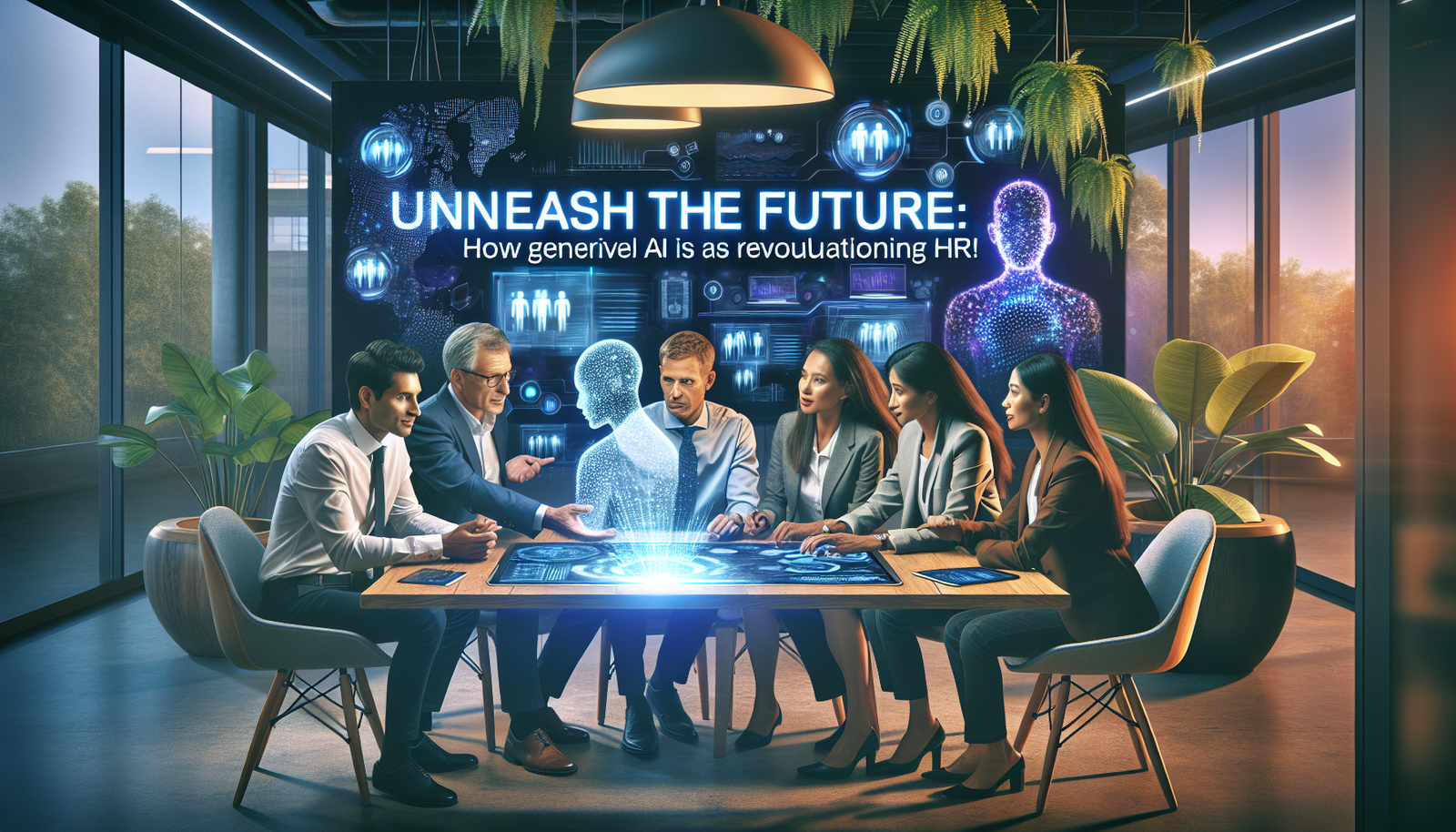Generative artificial intelligence reinvents human resources processes. By optimizing employee experience, this revolutionary technology personalizes training and adapts job descriptions. Organizations can thus transform their data into strategic decisions. With precise assistance in recruitment, predictive analysis facilitates talent detection. The dream of refined and unbiased human resource management is becoming a reality. The question arises: *how does this innovation shape the future of HR*?
Customization of training and job descriptions
Generative AI is revolutionizing the way companies approach employee training. Thanks to this technology, training content can now be tailored to the specific needs of employees. This customization allows for better assimilation of information and an improved learning dynamic.
Job descriptions can also benefit from this adaptation. By taking into account individual skills and career aspirations, the use of AI offers job profiles that are more in tune with the reality of employees. This thus promotes a more engaging and enriching professional experience.
Optimization of decision-making
One of the major advantages of generative AI lies in its ability to process complex data. Predictive analysis tools provide clear and actionable insights. This enables leaders to make informed decisions based on trends and accurate forecasts.
This efficiency in decision-making contributes to improving HR processes, particularly by optimizing talent management and organizational development. Leaders can thus define relevant strategies aligned with the company’s objectives.
Reduction of cognitive biases in recruitment
Cognitive biases are detrimental during recruitment processes. Generative AI offers solutions to reduce these prejudices by involving standardized and objective assessment systems. This ensures a fair and equitable selection of candidates, thereby increasing diversity within teams.
This approach also improves employee satisfaction. A better alignment between candidates’ values and those of the company fosters a positive work environment. This often translates to increased productivity and overall engagement.
Improvement of employee experience
Generative AI technologies provide real added value to the employee experience. By offering personalized development pathways and tailored learning opportunities, employees feel more valued. This contributes to retaining talent within the organization.
Regular feedback, facilitated by AI, allows for continuously adapting expectations and objectives. HR leaders can thus establish a culture of continuous improvement. Employees are thereby placed at the center of concerns, fostering an agile and dynamic work environment.
Automation of administrative processes
The automation of repetitive tasks is essential in human resources. Generative AI reduces the administrative burden, allowing teams to focus on value-added activities. Document management and processing routine requests become much more efficient.
By alleviating the workload, AI also helps reduce stress and improve well-being at work. Employees can focus on strategic and creative missions, enriching their professional experience. The optimization of working time is a direct benefit for all teams.
Evolution of corporate culture
The introduction of generative AI into HR processes fosters a transformation of corporate culture. The fear of automation gives way to an acceptance of new technologies. Employees become key players in this new digital era, with a willingness to learn and adapt.
This cultural transformation is accompanied by better communication among different hierarchical levels. AI facilitates interactions and information exchanges, thereby creating a collaborative and inclusive work environment.
Long-term competitive advantages
Organizations that adopt generative AI as a strategic lever can benefit from significant competitive advantages. By optimizing human resource management, they will improve their responsiveness to market changes. This will enhance their attractiveness and retain valuable talent.
The successful integration of this technology also creates a positive image for the company, oriented towards innovation and progress. This will appeal not only to potential candidates but also to clients looking for reliable and visionary partners. The potential of generative AI in human resources is undeniable, shaping the future of organizations.
Challenges abound, particularly in terms of ethics and regulation. Companies must ensure responsible use of AI, thereby fostering trust and security. In the face of these challenges, a human-centered managerial approach remains essential for the acceptance of these technologies, contributing to a smooth transition into the future. The benefits are immense for those who dare to take this turn.
Frequently Asked Questions about the Benefits of Generative AI for Transforming Human Resources
How does generative AI help personalize training in companies?
Generative AI allows for the creation of training programs tailored to the specific needs of each employee by analyzing their backgrounds and skills. This promotes a more relevant and effective learning experience.
What are the impacts of generative AI on recruitment?
It facilitates sourcing by automating the identification of potential candidates and reducing cognitive biases in the selection process, which improves diversity and the quality of hires.
Does generative AI improve decision-making in HR processes?
Yes, through predictive data analysis, generative AI allows HR leaders to make informed decisions based on concrete information and in-depth analyses.
How does generative AI contribute to talent management?
It optimizes talent management by offering personalized recommendations for professional development and identifying career advancement opportunities that align with employees’ aspirations.
What ethical challenges does the use of generative AI raise in human resources?
Challenges include the need to ensure algorithm transparency, avoid discrimination, and protect employees’ privacy when analyzing data.
How does generative AI transform job descriptions?
It enables the automatic generation of job descriptions that are better aligned with the required skills and the company’s objectives, while taking into account cultural and organizational specificities.
Can generative AI improve employee experience?
Yes, by customizing interactions and career paths, as well as providing immediate support through chatbots, AI contributes to a better overall employee experience.
What generative AI tools are available for HR departments?
There are several tools, such as recruitment automation platforms, personalized learning systems, and predictive analysis software, which facilitate the integration of AI into HR processes.
How does generative AI optimize performance management?
It allows for real-time performance data analysis, identifies improvement areas, and provides targeted feedback, thus contributing to more effective tracking of employees’ goals.
Can generative AI help reduce employee turnover?
Yes, by identifying satisfaction factors and proposing actions to enhance employee engagement, generative AI can help retain talent within the company.






